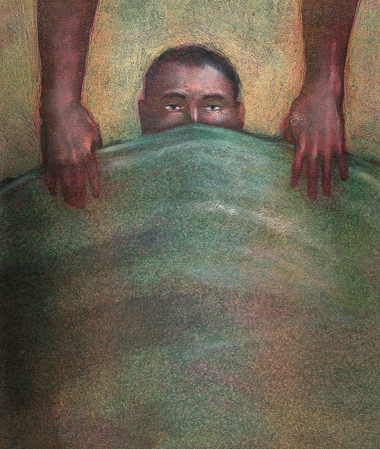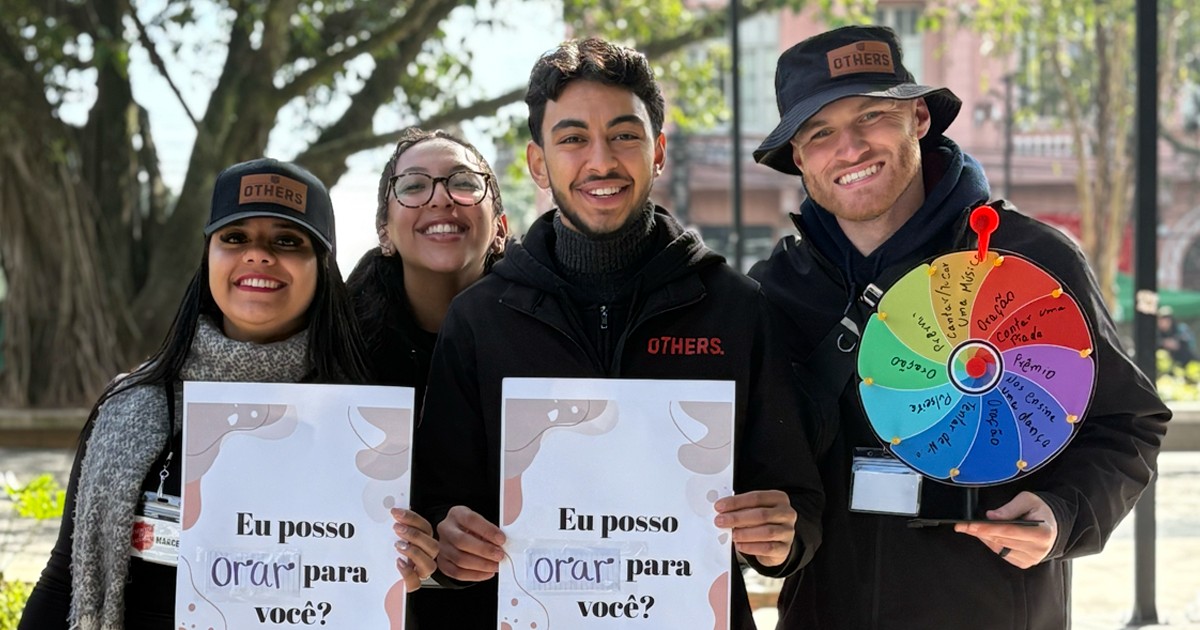
 In this Talking It Over series, Dr. James Read, Executive Director of The Salvation Army Ethics Centre in Winnipeg, and Captain Amy Reardon, Editor of Young Salvationist, U.S.A. National Headquarters, dialogue about moral and ethical issues. Click here to read more debates in the Talking It Over series.
In this Talking It Over series, Dr. James Read, Executive Director of The Salvation Army Ethics Centre in Winnipeg, and Captain Amy Reardon, Editor of Young Salvationist, U.S.A. National Headquarters, dialogue about moral and ethical issues. Click here to read more debates in the Talking It Over series.
Dear Jim,
Everywhere I look these days, I'm seeing news reports about euthanasia. When Dr. Jack Kevorkian first appeared on the scene, many of us shook our heads and said, “Death by choice is a slippery slope.” You know what? We were right.
 Kevorkian, the well-known euthanist, began practising physician-assisted suicide in 1990. His patients were terminally ill, many of them in great pain. I remember thinking, “If those who are physically tormented are permitted to end their lives, can those who are emotionally tormented be far behind? Will it become legal and dignified to terminate your own life because you've had a bad year?”
Kevorkian, the well-known euthanist, began practising physician-assisted suicide in 1990. His patients were terminally ill, many of them in great pain. I remember thinking, “If those who are physically tormented are permitted to end their lives, can those who are emotionally tormented be far behind? Will it become legal and dignified to terminate your own life because you've had a bad year?”
Still, I am not a stone. I did feel sympathy for those who knew they were dying and would rather die on their own terms, or die before the pain became intolerable. I can't say I supported it, but I understood it.
Now, however, it seems that Western society is sliding down that slippery slope at high speed. Recently, the renowned conductor of Britain's Royal Opera, Sir Edward Downes, ended his life in a suicide pact with his wife of 54 years. Both of these Britons travelled to Zurich, where they drank a deadly poison provided by an organization called Dignitas. Here's the thing, though: she was terminally ill, but he wasn't. He was quite healthy for a man advanced in years. He ended his life because he didn't want to live without his partner.
I suppose Dr. Ezekiel Emanuel would have approved. Emanuel, an American with a governmental position as a medical advisor, believes it is “social justice” to withhold medical care from the elderly. Too much is spent on their care, and he feels it would be better to invest medical costs in those who have more years—healthier years—to contribute to society. Perhaps Emanuel would say that Downes became superfluous. The former conductor had laid down his baton, so he was no longer needed.
Emanuel's view brings me to a deeper concern. His approach to health care is back-handed euthanasia, and it is not voluntary. It may soon become a reality in the United States that the government decides who is worthy of medical care. Specifically, the elderly will be denied the medical care they need to extend their lives. They will die because they will be refused medicine and procedures that could save them. This is a matter of money. I know that is reality—but still, it sickens me.
The treatments that now help people live well into their eighties and nineties haven't been around too long. For millennia people have died younger when their bodies gave out. But today it seems almost barbaric to deny available medicine or therapy to those who need it.
What is the value of life, and who gets to make that determination? Does Edward Downes have the right to decide he doesn't want to live if there are children, opera fans and community members who value him? Should elderly people be sacrificed for those who are younger? Is it fair to assume that those who are younger are always of greater value to society?
Amy
Dear Amy,
You don't shy away from the big questions, do you? And so many of them all at once! They're all important and they're connected, but I think we have to guard against a slippery slope becoming an avalanche.
Your transition from Edward Downes to Ezekiel Emanuel caught me by surprise when I first read it. Then I remembered that in the United States you are immersed in a debate about health-care reform. I predict it will get much nastier before it gets better. When we had the first debates about universal coverage here in Canada 50 years ago, doctors went on strike and the government had to recruit sympathetic providers from England.
Our system is hardly perfect, but on the whole we are proud of the fact that every Canadian is guaranteed coverage for treatments that doctors say are needed. That's different from saying that everything is covered. Some tests, procedures and medications are not paid for by our health plan. It's the same everywhere, of course. We have publicly funded health insurance, while most insurance in the United States is private, but no insurer has bottomless pockets. Even those Americans whose employers provide the most extensive (and expensive) health insurance will find that some things are excluded.
As I see it, the question isn't whether we have to live within limits—that's simply reality. The question is what kind of limits, how they are set and by whom. I think you may have misunderstood Emanuel (although I admit he does sometimes write as an intentionally provocative academic), but there are definitely others who think that limits should be set according to some “objective” measure of quality of life. There are those who believe in purposely ending the lives of those they think too ill, too old or too useless. That was explicitly the argument of the Nazi “euthanasia” programs, the systematic murder of mentally and physically disabled people prior to the Holocaust. It was unspeakably evil then and it is unspeakably evil now.
Who can really know the quality of somebody else's life? Can those of us who walk really know what it's like to live life from a wheelchair? Can those of us who feed ourselves really know what it's like to need to be fed? I have been privileged to work with disabilities groups that are concerned about the direction medicine is going when it comes to end-of-life decisions. They know that able-bodied persons like me routinely rate the lives of disabled persons as worse than the disabled persons themselves do.
Suppose it's not somebody else, however, but the people themselves who do the measuring, who say that going on is too painful or no longer meaningful. Edward and Joan Downes, for instance. You seem to be able to sympathize more easily with her, and yet I can imagine Sir Edward's question. What is life worth when you're faced with profound loneliness and loss of the work in which you have found satisfaction?
Perhaps we're barking up the wrong tree. Maybe it's a mistake to think the morality of euthanasia turns on the “quality” or “value” of life in the first place.
Jim
Dear Jim,
As far as the ethics of this are concerned, I'm baffled. The founder of Dignitas, Ludwig Minelli, has said that the right to decide to end one's life only makes sense to those who believe in personal autonomy. From a purely ethical standpoint, I'm at a loss for how to respond.
But I'm not at a loss from a biblical standpoint. I think the Bible is clear as to God's desires on the matter. I don't expect non-believers to submit themselves to Christian principles because they have not embraced the Bible as their instruction for faith and practice. Nevertheless, you and I acknowledge that the Bible is our primary tool for finding out what God wishes. So, I think that we could at least advise a Christian regarding euthanasia with certainty as to God's view.
I did feel sympathy for those who would rather die before the pain became intolerable
In John 10:10, Jesus tells us that he came to earth so that we might have abundant life. In Romans 8:28, we are assured that, no matter what befalls us, God can work all things together for our benefit. To relinquish the life God gave us, the life he continually blesses, does not seem to be in line with his plan. I cannot think of any Scripture passage that would remotely support ending one's life voluntarily.
I also think of 1 Corinthians 12, which speaks of the body of Christ. I would argue that Christians can't really claim total autonomy and, in consequence, the right to decide when to terminate their own lives. We don't belong to ourselves. We belong to Christ and we belong to each other.
The following passage isn't about suicide, but I think it applies, and it shows the strength of God's feeling: “Don't you know that you yourselves are God's temple and that God's Spirit dwells in your midst? If anyone destroys God's temple, God will destroy that person; for God's temple is sacred, and you together are that temple” (1 Corinthians 3:16-17).
If we are his temple, and we have said, “I no longer live, but Christ lives in me” (Galatians 2:20), we should not take our lives into our own hands. We put them in his.
Amy
Dear Amy,
You've said it: in fundamental ways our lives are not just our own. And that has implications for what we say about euthanasia and assisted suicide. Perhaps I am naively hopeful, but I think this is a truth that can be perceived by those who aren't Christians, too.
Despite Dignitas, there aren't many who ask to be euthanized as a way of expressing their autonomy. Most aren't trying to make a statement that they have a right to control their destiny. It's more likely that they can't make sense of the suffering or find it in themselves to put up with the pain anymore.
That's what I've learned from clinicians working in end-of-life care. There are some truly amazing Christians in that field. They tell me the space they work in is sacred. The Scripture you quoted resonates with them as they attend to patients in agonizing pain and suffering. I think their presence is an incarnate sign that we do belong to each other, even—or especially—at such times.
On the other hand, some people have read the Scriptures you cited and concluded that life must be preserved “at all cost.” I don't think that's the Christian message either.
Think how much of Jesus' life is also the story of his death. Fully half of the Gospel of Luke has the shadow of Calvary over it. And think how often Scripture talks of the death of the saints in positive terms. You quoted Paul's words to the Galatians; in writing to the Philippians, Paul says he doesn't know whether life or death is better (see Philippians 1:23).
I'm not suggesting that Paul or Jesus was suicidal! My point is that the subject we are dealing with requires balanced discernment. When is refusal of medical treatment a denial of the gift of life God has entrusted to us, and when is resisting death a failure to accept our mortality?
There was a time when the Church prepared believers for a “good death,” not for euthanasia. Maybe we need to get back to that. After all, can a Christian really make sense of living well without having a notion of dying well, too?
Jim









Leave a Comment